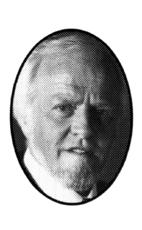Mr. Speaker, it is impossible not to notice the paradox between this theme, communication, and the lack of transparency and information that characterizes this government.
Why is it so difficult if not impossible for members of Parliament, who are the elected representatives of the people, to obtain the right to take part, even if only as observers, in consultations with various groups in our society? Why is it that the government, which is constantly promoting communication, especially through the Internet, has cut subsidies to the NGOs responsible for making the Canadian public aware of the importance of development? We know that the key to gaining support for our efforts toward sustainable human development depends mainly on raising public awareness in donor countries.
Why is silence the only response we get when we try to find out what is happening within the ministerial action group since the disguised failure of the special mission sent to Nigeria to examine the situation with regard to democracy and human rights?
In the meantime, General Abacha's regime continues to hold sway with complete impunity. The Commonwealth is even considering welcoming that country back as a member although the situation has not improved in any way since the execution of Ken Saro Wiwa and eight other Ogoni political opponents.
The Commonwealth is indeed a valuable forum to discuss important issues as long as the political will is there. Canada has succeeded in distinguishing itself in the past when it fought against apartheid in South Africa. Despite this positive example, which shows that communication is possible, it remains extremely difficult to reach a consensus when it comes to democracy and human rights, even within a group as limited as the ministerial action group.
Canada can and must exercise strong leadership within the Commonwealth in order to promote democracy and human rights. There are signs of a tendency to use all multilateral forums, including the Commonwealth, to deal with trade issues as separately as possible from human rights and democracy.
In these times of increasing globalization, there is a great risk that vital questions will be overlooked. Canada must not give in to this tendency and must continue to defend human rights and democracy, as it began to do in the case of Nigeria, with the support of Parliament and of the people of Quebec and of Canada.
That having been said, I would also call on the government, next year and in subsequent years, to implement one of the unanimous recommendations of the report by the Sub-Committee on Sustainable Human Development. The committee recommended that the Canadian government play a leadership role within the Commonwealth and elsewhere, in order to raise the issue of child labour and to bring about concrete solutions.
Given that the problem of the exploitation of child labour is one that affects a number of Commonwealth countries, including India, Canada must seize the opportunity provided by this multilateral forum to help move the cause of children throughout the world significantly forward.
In this regard, the Bloc Quebecois intends to keep an eye on the results of the next meeting of Commonwealth heads of government, scheduled to take place in Edinburgh next October 24 to 27.

